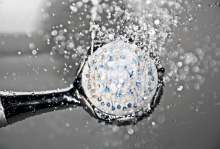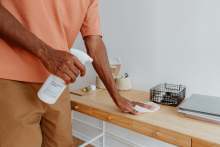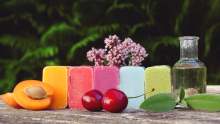How to avoid plastic in soaps and shampoo
Solid soap and shampoo bars
Swap shower gel and handwash which come in plastic bottles for a bar of solid soap, which is usually packaged loose or in cardboard or paper. If you use solid soap, save the tiny stubs and pop them into a sisal bag for a natural body scrub!
If you buy solid bars, make sure to check the ingredients if you are vegetarian or vegan — some solid soaps may contain sodium tallowate, made from rendered animal fat. Stearic acid and glycerin in soap can be animal derived, plant derived or synthetic, so check the label for vegetarian or vegan certification. Read the separate article about animal ingredients in cosmetics to find out what else to look out for.
Re-fills for handwash and shampoo
Another zero-waste option is to choose refillable liquid soap, shower gel, shampoo and conditioner. More companies are now selling their products as refillable options, either through local shops, or online. If you buy online you can often buy large 5 litre or even 20 litre containers, which saves on plastic. If you have a local shop which has a re-fill section you can take your own container and re-fill it from their larger ones.
The guides to shampoo, and cleaning products highlight the re-fill brands.
Alternatives to traditional soap and shampoo
A Moroccan clay powder called rhassoul can be used to replace both soap and shampoo. It's even possible to wash your hair with rye flour!
Coconut oil, cider vinegar or a herbal rinse of marshmallow root can be used to condition hair.








